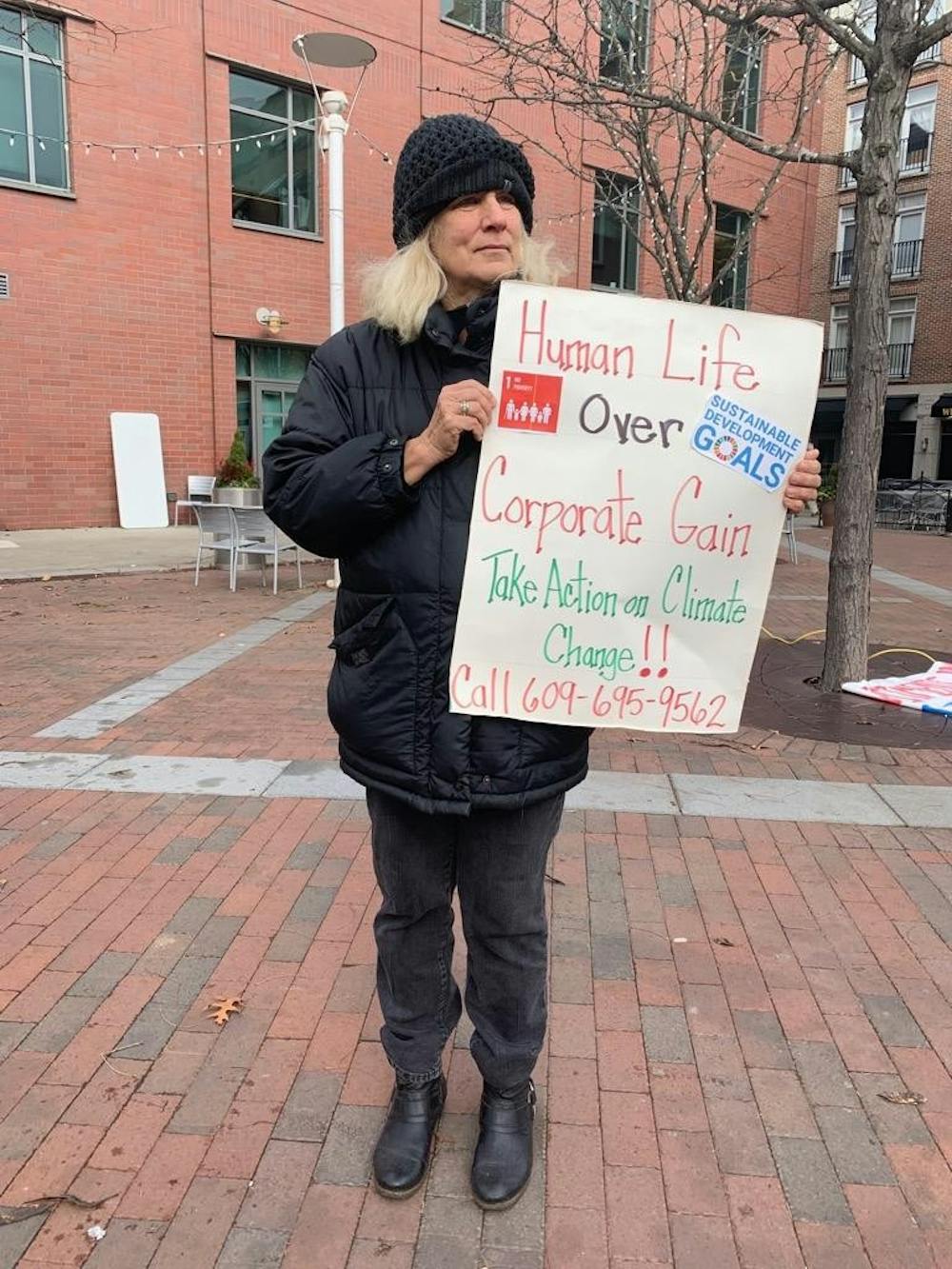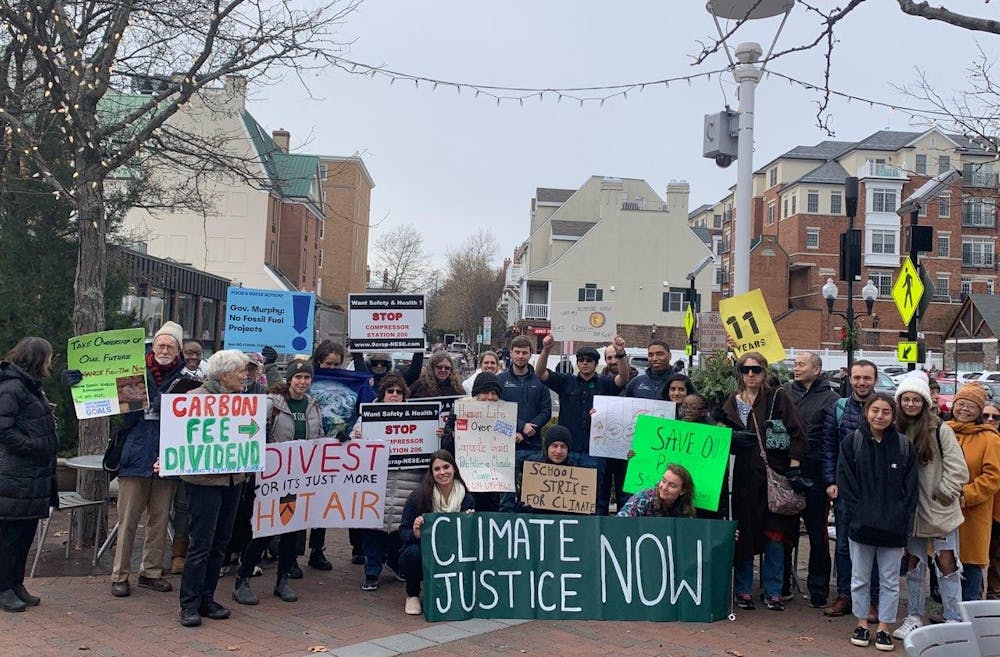On Friday, Dec. 6, about 40 demonstrators gathered in Hinds Plaza to take part in the Princeton Climate Strike.
The strike was one of dozens of similar events across the nation and across the world. From Philadelphia and Washington D.C., to Cedar Rapids and Madrid, thousands of protestors gathered to raise awareness of the climate crisis as world leaders gathered for the United Nations’ annual climate conference.
The demonstration was organized by Princeton High School (PHS) students. However, most of the organizers were prevented from attending by a ‘shelter-in-place’ security measure at the school in response to a shooting threat.
Despite the lockdown, local residents, University students, and a handful of high school students who left before the lockdown convened to hear from speakers and voice their concerns.

Photo credit: Rose Gilbert / The Daily Princetonian
Martin Mastnak, a student at PHS, rejected the argument that the environmentalist movement was elitist, pointing out that marginalized and indigenous communities are often the hardest hit by the symptoms of climate change like droughts, fires, and other extreme weather events.
“We are fighting for the simple right of a life safe from corporate ecocide. We are not the elitists,” he said. “The elitists you should be worried about are the oil executives, the logging executives ruining indigenous land.”
Mastnak also noted that while American and European climate efforts are more widely-covered, dozens of activists have been killed in Latin America while protesting environmental issues.
According to a July report from the British non-profit Global Witness, 164 climate activists were murdered in the past year; more than half of these homicides occurred in Latin America. Roughly 40 percent of the deaths were tied to state security forces and a similar number to private actors like landowners, gangs, and hitmen.
Zahra Lohoue, a local ninth-grader, has spoken at multiple climate strikes, including the Princeton Climate Strike that took place this September.
“Human health and safety is at risk,” she said. “You need to stop worrying about your money and start worrying about the earth.”

“I might just be a fourteen-year-old telling you how scared I am, but I know enough to tell you that this is urgent,” Lohoue added.
After hearing from Mastnak and Lohoue, organizers turned over the mic to other demonstrators. Linda Powell, the outreach coordinator of Central Jersey Environmental Defenders, stood to ask the crowd to oppose ongoing plans for a natural gas pipeline. Powell, a long-time environmental activist, offered some perspective for this new wave of climate activists.
“I’m a boomer and I’ve been fighting the ills and ravages of capitalism longer than most of you have been alive,“ Powell said. “When I first became an environmentalist, friends would tell me that wasn’t very political. Well, shit, we know it is now.”
Also in attendance were members of the Eastern Service Workers Association (ESWA), an organization that represents low-income workers who are often disproportionately burdened by extreme weather events, which are increasing in frequency and severity due to climate change.

Victoria Floor, a volunteer with ESWA, said that the group is advocating for New Jersey’s sustainability efforts to incorporate the needs of poor working families, who often face power shut-offs and cannot afford increased utility bills.
Floor added that the ESWA wants the state to move towards renewable energy as quickly as possible, but not at the expense of its most vulnerable residents.
“If these goals do not consider the poor, what is the point?” Floor said.
Molly Jones, the executive director of Sustainable Princeton, closed the event by thanking the demonstrators for coming out and urging them to reach out to their local representatives.








